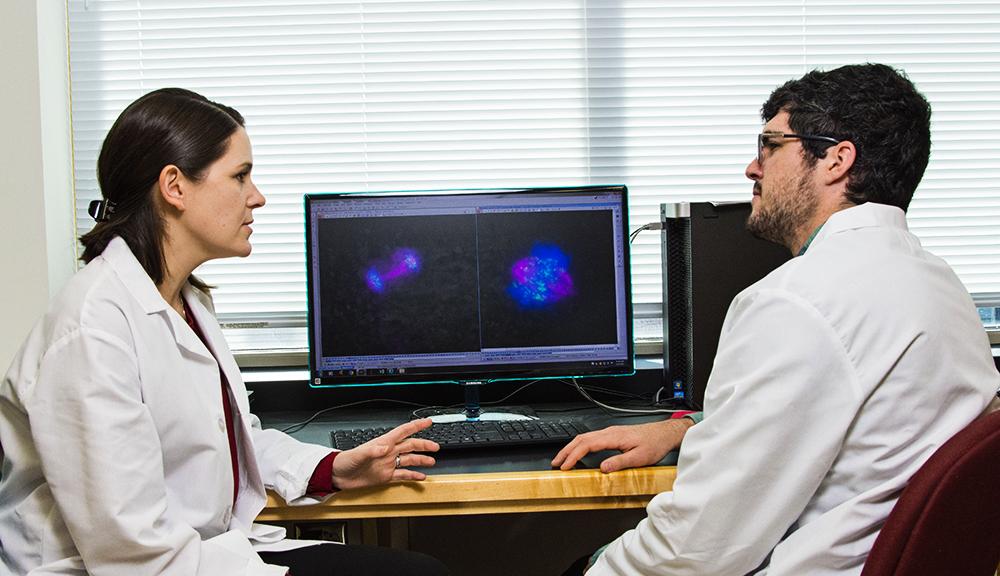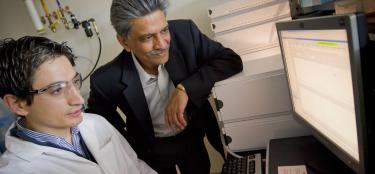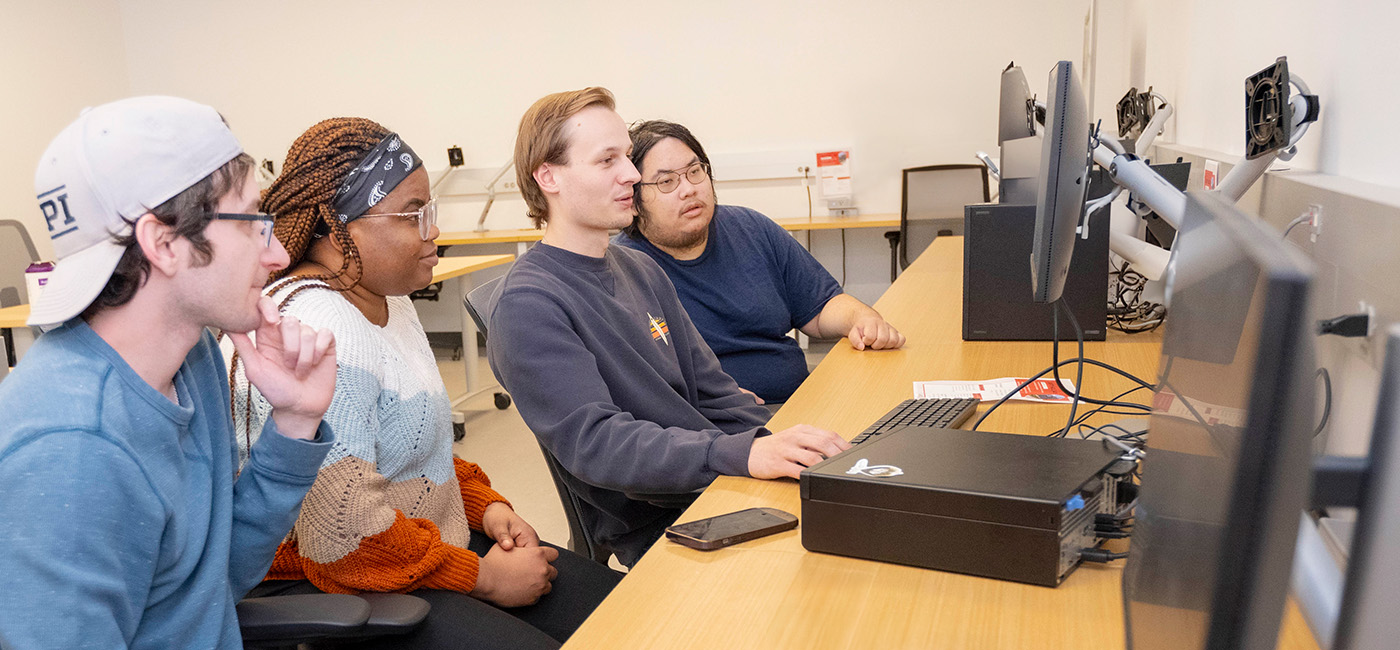WPI’s master’s in Bioinformatics and Computational Biology (BCB) will prepare you to become a truly interdisciplinary scientist with expertise in computer science, informatics, and statistics on the one hand, and life sciences on the other.
While other schools offer Bioinformatics as a concentration within a Biology program, WPI’s BCB department draws equally from three disciplines—Biology, Computer Science, and Mathematics. You will become versed in each and specialize in one, working alongside expert researchers to translate staggering volumes of biological data into new knowledge and uncover meaningful ways to improve health care and the environment.

Life Sciences & Biotechnology: Career Outcomes
What does a career in Life Sciences & Biotechnology look like? Browse WPI and national data to learn more about companies who have hired WPI graduate, average salaries, job outlook, and more.
Through our well-rounded master’s in bioinformatics and computational biology curriculum, you will be expected to develop a base of knowledge In Biology, Computer Science, and Mathematics, but how you do so is up to you—choose courses from virology to environmental challenges; design of software systems to artificial intelligence; and Bayesian statistics to regression analysis.
You can also take unique interdisciplinary courses in topics including biovisualization, biomedical database mining, simulation in biology, and statistical methods in genetics and bioinformatics.
No matter what topics you choose, you will have many chances to apply your growing knowledge to solve real problems through hands-on projects. You will also synthesize your learning with a research-based thesis or industrial internship.
WPI’s research in Bioinformatics and Computational Biology is as diverse as our wide-ranging course selection. You will have many opportunities to work alongside faculty and student researchers who are solving biological problems using mathematical and computational analysis in these areas:

Students in WPI’s bioinformatics program learn cutting-edge approaches in areas such as artificial intelligence (AI) and machine learning, next-generation sequencing, bioinformatics, systems biology, high-performance computing, big data mining, and visualization.

In addition to wet labs and facilities at UMMS, students may access resources in WPI’s Visualization Laboratory, Knowledge Discovery and Data Mining Laboratory, Database Systems Laboratory, and in several powerful computer clusters.

Students apply varied approaches to understand genetic and infectious diseases, prevent ecological disasters, develop new drugs and computational diagnostics tools, and explore new biological phenomena.

Biology, computer science, and mathematics—these disciplines contribute to advances in biological and biomedical science. At WPI, collaboration between disciplines leads to greater discoveries.
- Genome-wide association studies
- Machine learning
- Mathematical biology
- Simulation of biological systems
- Combinatorics of sequences
- Comparative genomics
- Data mining and pattern recognition
- Data visualization
Graduate Studies Series
Team members from Graduate & Professional Studies host quick and convenient webinars designed to highlight popular topics when starting grad school. Take a deep dive into specific areas of interest such as how to secure funding, how to ace your application, an overview of student services, and more!
Faculty Profiles





Have questions?
WPI's dedicated graduate student support team can help.
Refer a Friend
Do you have a friend, colleague, or family member who might be interested in a WPI graduate program? Click below to tell them about our programs.
Are You Ready to Take Your Career To the Next Level?
If you’re intrigued by the growing quantitative and digital side of the bioinformatics and computational biology field, now is the time to push the boundaries of what is possible. Explore some of your pressing questions about master’s in bioinformatics salary, job opportunities, and even sample companies that hire our WPI grads on our career outlook page. Are you asking yourself what does a computational biologist do or is a master’s in bioinformatics worth it? We are here to help mold graduates into pursuing a rewarding career.
Gain a Career Edge with a PhD
Do you already have your master’s in bioinformatics and computational biology and are looking to elevate this expertise to solve pressing problems? Our PhD in bioinformatics and computational biology enables students to create and apply the tools needed to predict and prevent disease.
How Do You Begin a Path in Bioinformatics and Computational Biology?
If you know you’re interested in using computational tools and you’re equally interested in biological systems, using the two together leads to a fulfilling and meaningful career. To get started, explore WPI’s BS in bioinformatics and computational biology to discover all the ways you can follow your interests while making a significant impact in the world. You’ll combine computer science, biology, and mathematical sciences to study biological systems with a computational approach. If this cutting-edge field interests you but you are pursuing a different major, a minor in bioinformatics and computational biology can give you a solid foundation in these tools that you’ll apply to a life sciences career or to your overall studies.

